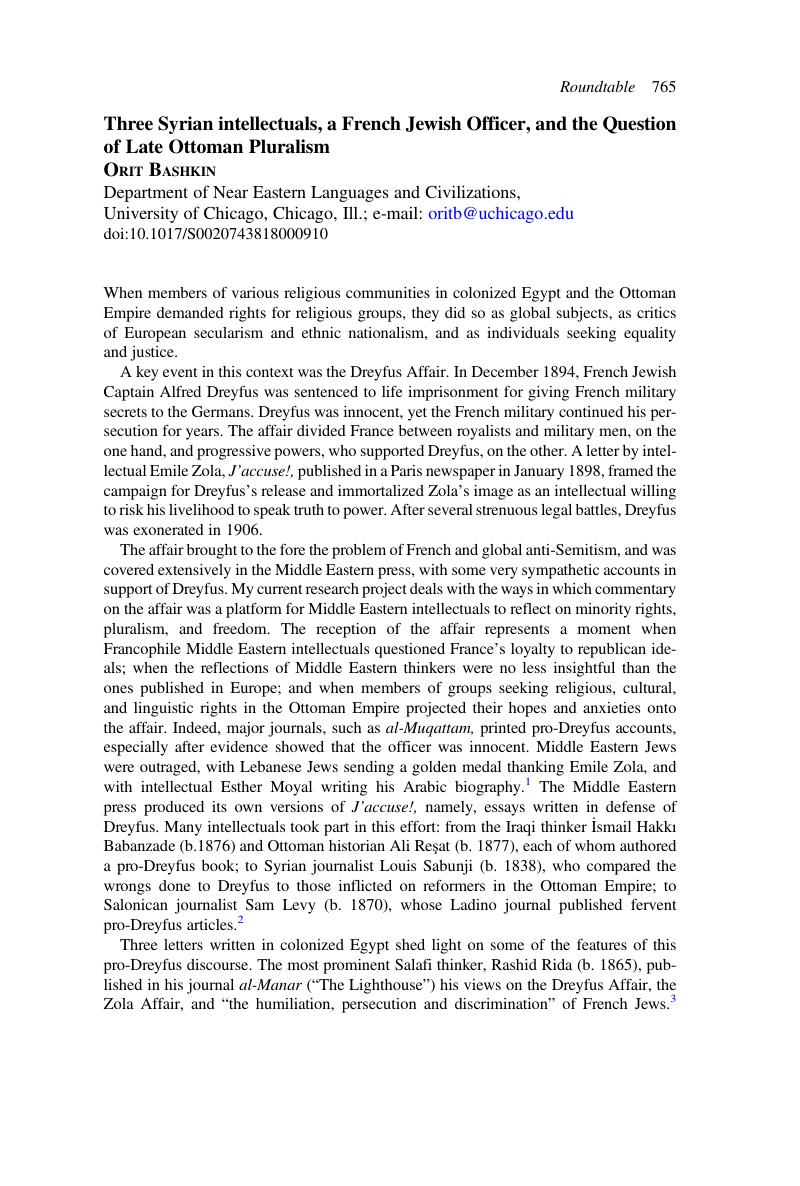Published online by Cambridge University Press: 28 November 2018

1 Sehayek, Shaul, “Parashat Dreyfus ba-ʿItonot ha-ʿAravit,” Michael: On the History of the Jews in the Diaspora 14 (1997): 184–214Google Scholar; Türesay, Özgür, “L'Affaire Dreyfus vue par les intellectuels ottomans,” Turcica: Revue d’études turques 47 (2016): 237–58Google Scholar.
2 Borovaya, Olga, “Jews of Three Colors: The Path to Modernity in the Ladino Press at the Turn of the Twentieth Century,” Jewish Social Studies 15 (2008): 110–30Google Scholar; Reşat, Ali and Hakkı, İsmail, Dreyfüs Meselesi ve Esbab-ı Hafiyesi (Istanbul: A. Asaduryan, 1315 [1899])Google Scholar.
3 Hourani, Albert, Arabic Thought in the Liberal Age (New York: Oxford University Press, 1962), 222–45Google Scholar; Kerr, Malcolm, Islamic Reform: The Political and Legal Theories of Muhammad Abduh and Rashid Rida (Berkeley, Calif.: University of California University Press, 1966)Google Scholar. On Rida and the Jewish question, see Haim, Sylvia G., “Arabic Antisemitic Literature: Some Preliminary Notes,” Jewish Social Studies 17 (1955): 307–12Google Scholar; and Gribetz, Jonathan Marc, Defining Neighbors: Religion, Race, and the Early Zionist-Arab Encounter (Princeton, N.J.: Princeton University Press, 2014), 149–82CrossRefGoogle Scholar.
4 Al-Manar, March 1898.
5 Harel, Yaron, “In the Wake of the Dreyfus Affair,” Revue des Études Juives 166 (2007): 473–91CrossRefGoogle Scholar.
6 Al-Jamiʿa, 1 July 1899; Bashkin, Orit, “My Sister Esther: Reflections on Judaism, Ottomanism, and the Empire of Egypt in the Works of Farah Antun,” in The Long 1890s in Egypt: Colonial Quiescence, Subterranean Resistance, ed. Booth, Marilyn and Gorman, Anthony (Edinburgh: Edinburgh University Press, 2014)Google Scholar.